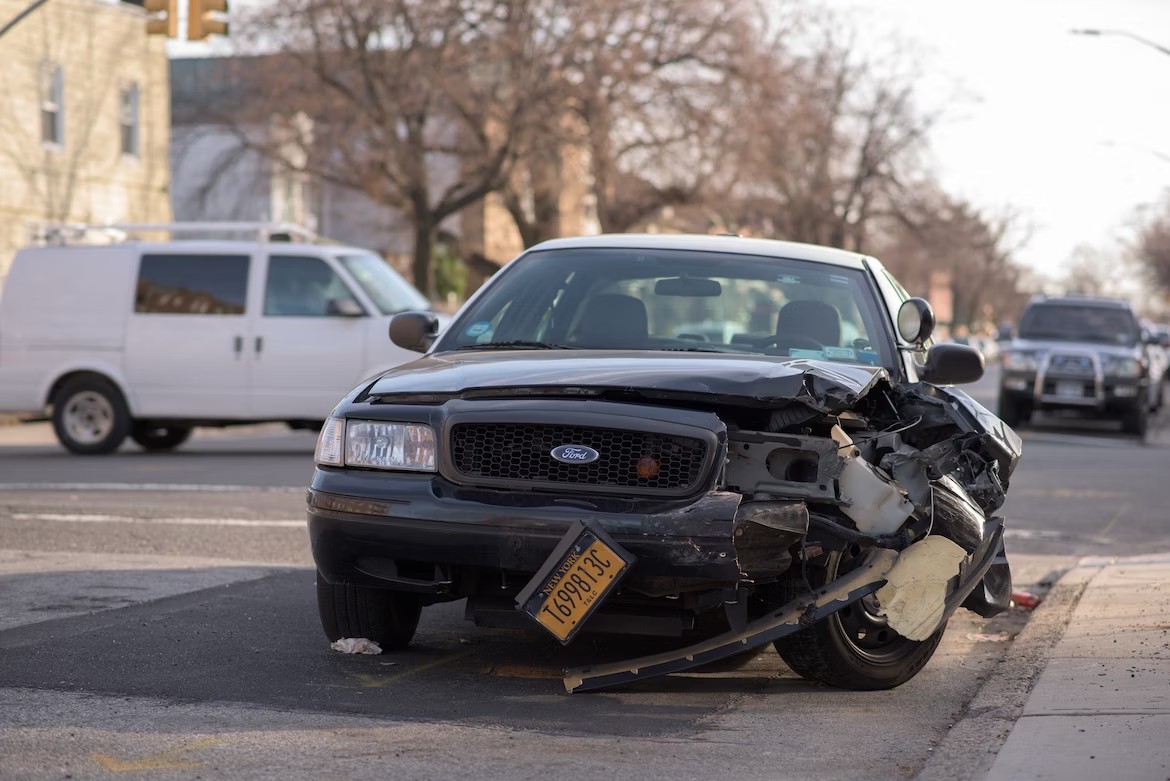Have you ever considered the vast amount of data your car holds? Modern vehicles have digital features that can reveal critical information, from GPS locations to call and message logs.
This is where digital vehicle forensics comes into play. Digital vehicle forensics involves using specialized tools and techniques to extract and analyze data stored in cars’ electronic systems. Let’s learn more about it.
What is Digital Vehicle Forensics?
Digital vehicle forensics is the process of extracting, analyzing, and interpreting data from electronic systems installed in modern automobiles. This field requires specialized tools and techniques to handle different types of digital evidence.
The main objective of digital vehicle forensics is to uncover crucial information from a car’s system that can be used as evidence in criminal investigations or legal proceedings.
The extracted data can provide insight into various aspects, such as the driver’s behavior, location history, communication patterns, and even possible mechanical issues with the car.
With advancements in technology, vehicles now come equipped with complex electronic systems like infotainment units, engine control modules (ECMs), airbag control modules (ACMs), and more. These systems constantly collect data about how the car is being driven and communicate it through various sensors.
By utilizing digital forensic services on these systems’ stored information, investigators can accurately reconstruct a picture of what happened leading up to an event.
Digital vehicle forensics plays a vital role in providing insights into accidents involving cars while also helping law enforcement agencies solve crimes by examining critical communication patterns between suspects or victims found within vehicle logs.
How Does the Vehicle Store Information?
Modern automobiles are equipped with many electronic systems that generate and store data. The information stored within these systems can range from basic vehicle diagnostics to detailed driving behavior, such as speed, acceleration, and braking patterns.
The primary storage location for most vehicle data is the Electronic Control Unit (ECU), the brain of the car’s operation. This unit controls various aspects of the car’s performance, including engine timing, fuel injection, and transmission shifting.
Additionally, some vehicles have multiple ECUs that manage different subsystems like climate control or navigation.
The ECU stores this information in non-volatile memory chips that retain data even when power is disconnected. Depending on the vehicle’s make and model, one or more memory chips may be present across different electronic systems.
Another storage location for vehicle data is infotainment systems. These units typically store less critical information, such as media preferences or phone contacts but can also contain GPS locations and other sensitive personal information.
Modern cars often include event recorders called “black boxes”—similar to those used in airplanes—designed to capture important crash-related data such as airbag deployment time stamps or seatbelt usage rates.
How Does Law Enforcement Conduct Digital Vehicles Forensic?
Law enforcement agencies can obtain digital evidence from modern vehicles by conducting forensic investigations.
To conduct a digital vehicle forensic examination, law enforcement officials typically require specialized equipment and software to extract and analyze the data stored in various electronic systems within the car.
First, investigators connect a device to the diagnostic port of the target vehicle to retrieve its onboard computer system information. This process generates a report that provides insight into any recent activity or events that may have occurred when the car was running.
Once this initial data has been collected, analysts must examine it carefully for any indications of tampering or unusual activity. They use sophisticated tools like hex editors and file viewers to decode raw binary data and uncover hidden files on storage devices like SD cards or USB drives.
Forensic analysts compile their findings into detailed reports that can be used as evidence in criminal proceedings. These reports provide objective accounts of what happened during an incident with hard facts to support them.
Law enforcement officers utilize cutting-edge technology and techniques to collect information stored digitally in modern automobiles. Digital forensic services are essential in providing tangible proof that assists legal proceedings against criminals involved with vehicular activities such as reckless driving or hit-and-run accidents.
What Data Can Be Revealed in a Forensic Car Inspection?
A digital vehicle forensic investigation can reveal a wealth of information about the car’s history and usage. The data that can be revealed depends on the specific make and model of the vehicle, as well as its age, but some common types of data include:
GPS location data is one type of information that can be obtained in a forensic car inspection. This includes current and past locations, which helps investigators reconstruct movements leading up to an incident.
Call logs and messaging data can also be retrieved during an investigation. This may provide crucial evidence for law enforcement, especially when investigating distracted driving accidents.
Internet activity, such as browsing history and downloads from infotainment systems, are also available, making it easier to prove if a driver was using their phone or other electronic devices while driving.
ECU records, including speedometer readings and brake applications, are valuable evidence that allows accident reconstructionists to piece together events leading up to an accident.
Digital vehicle forensics provides critical insights into how cars were used before accidents, making it possible for police officers to investigate road traffic crimes more efficiently.
Digital Vehicle Forensics Uses
The data stored within a modern automobile can provide crucial evidence for law enforcement and other agencies.
Digital vehicle forensics has solved hit-and-runs, burglaries, and even homicides. It can reveal the driver’s behavior before an accident or crime and their location at specific times.
Additionally, car manufacturers use this technology to improve safety features and address potential vehicle issues. Digital forensics has also played a role in solving product liability cases by identifying defects or malfunctions in automobiles.
Digital vehicle forensics is vital in modern-day investigations and provides valuable insights into motor vehicle incidents. As technology advances rapidly, we can expect further improvements in vehicle digital forensic analysis.
Car Accident Forensics
Car accident forensics is investigating vehicle collisions to determine what happened, how it happened, and who was responsible. This involves collecting evidence from the scene, analyzing data from the vehicles involved, and interviewing witnesses.
One of the most important aspects of car accident forensics is reconstructing the events leading up to the crash. Digital forensic engineers use tools like laser scanners and drones to create a 3D model of the accident scene. They also collect physical evidence, such as skid marks, debris, and vehicle damage patterns.
Insurers can use the information gathered during an investigation to determine fault and assess damages in insurance claims. Law enforcement agencies may also use this information in criminal investigations if there are allegations of reckless driving or other illegal activities.
With technological advancements, car accident forensic investigators can access more digital evidence than ever.
By piecing together all available data points from various sources, including witness statements, police reports, and others, they build a complete picture that helps insurance companies make informed decisions based on facts rather than hearsay or speculation alone.
The Process of Accident Investigation
Investigating auto accidents is essential for determining what led to an accident and why. Using digital car forensics in accident reconstruction and culpability determination is becoming increasingly common.
Some important considerations for how digital car forensics might aid in accident investigations are:
Retrieving and Analyzing Data Recorders
Digital vehicle forensics involves extracting data from vehicle data recorders, commonly known as black boxes. These recorders capture vital information such as speed, braking, acceleration, and other vehicle parameters before, during, and after an accident. Analyzing this data helps reconstruct the sequence of events leading to the accident.
Assessing Vehicle Speed and Movement
Digital forensics experts can determine the vehicle’s speed at different points during the accident by examining the data obtained from the vehicle’s sensors and systems. This information is crucial in understanding the dynamics of the collision and assessing the contributing factors.
Analyzing Driver Behavior and Distractions
By examining in-vehicle systems, including infotainment systems or mobile devices connected to the vehicle, investigators can determine whether the driver was distracted or engaged in activities that contributed to the crash.
Evaluating Pre- and Post-Accident Data
Digital vehicle forensics allows investigators to analyze data collected before and after the accident. This includes vehicle maintenance and service logs, which can provide insights into any potential mechanical issues that may have contributed to the accident. Comparing pre-accident data with post-accident data helps identify any changes or anomalies due to the collision.
Identifying Vehicle Malfunctions or Tampering
By examining digital evidence, such as diagnostic logs or onboard system data, digital vehicle forensics can identify any potential vehicle malfunctions or tampering that might have played a role in the accident. This information is essential in determining liability and holding responsible parties accountable.
Assessing Drug or Alcohol Influence
In cases where driver impairment is suspected, digital vehicle forensics can assist in evaluating whether drugs or alcohol were a contributing factor. This can be done by analyzing vehicle operation data, such as braking patterns, steering input, and other sensor readings.
Analyzing In-Vehicle Behavior
Advanced vehicles equipped with in-vehicle cameras or monitoring systems can provide valuable insights into driver behavior leading up to and during the accident. Digital vehicle forensics specialists can analyze this footage to determine if reckless driving, sudden maneuvers, or other unsafe actions occurred.
Identifying Patterns of Reckless Driving
By analyzing historical data from the vehicle, including driving patterns, speeds, and other behavioral factors, digital vehicle forensics can help identify patterns of reckless driving or repeated traffic violations that may have contributed to the accident. This information can be crucial for law enforcement and insurance investigations.
Vehicle Forensics for Insurance Companies
Vehicle forensics plays a crucial role in the investigation of car accidents for insurance companies. In recent years, there has been an increase in the use of digital data from modern automobiles to determine liability and damages in accident claims.
By analyzing this data, they can accurately reconstruct the events leading to an accident. This evidence helps insurers determine liability and provides valuable insights into driver behavior that could help prevent future accidents.
Moreover, vehicle forensics is important when dealing with fraudulent insurance claims since some drivers may try to stage or fabricate accidents for financial gain. By using forensic techniques like examining digital evidence found on the vehicles involved in such cases, insurers can detect potential frauds more easily than ever before.
Vehicle forensic investigation is vital for insurance companies when adjudicating automobile-based compensation claims relating to car crashes because it offers precise answers based on irrefutable proof regardless of what human memory recollects.
This is where technology comes into play by providing viable solutions tailored toward specific needs, thus enabling investigators to narrow their focus while eliminating errors that befall traditional investigative methods.
Why Choose Eclipse Forensics for Vehicle Forensics?
Here’s why choosing a cyber forensic expert from Eclipse Forensics for digital vehicle forensics is a smart decision:
- Expertise and experience in digital vehicle forensics
- Utilization of cutting-edge technology and tools
- Comprehensive approach considering various aspects and factors.
- Emphasis on the accuracy and reliability of findings
- Customized solutions tailored to specific case requirements.
- Commitment to confidentiality and integrity
- Trusted and reputable organization in the field of vehicle forensics
When it comes to digital vehicle forensics, Eclipse Forensics stands out as the best choice for reliable and comprehensive investigative services. So, don’t waste more time and choose the best digital forensics experts.Call now!








